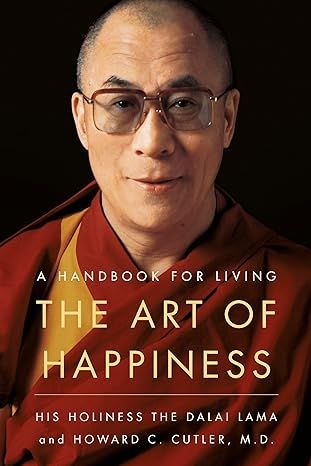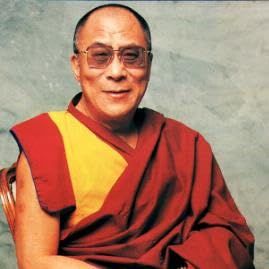The Art of Happiness: A Handbook for Living
4.7
-
10,280 ratings
Available for the first time in trade paperback, the multi-million copy bestselling guide to happiness from His Holiness the Dalai Lama.
Nearly every time you see him, he's laughing, or at least smiling. And he makes everyone else around him feel like smiling. He's the Dalai Lama, the spiritual and temporal leader of Tibet, a Nobel Prize winner, and a hugely sought-after speaker and statesman. Why is he so popular? Even after spending only a few minutes in his presence you can't help feeling happier.
If you ask him if he's happy, even though he's suffered the loss of his country, the Dalai Lama will give you an unconditional yes. What's more, he'll tell you that happiness is the purpose of life, and that the very motion of our life is toward happiness. How to get there has always been the question. He's tried to answer it before, but he's never had the help of a psychiatrist to get the message across in a context we can easily understand.
The Art of Happiness is the book that started the genre of happiness books, and it remains the cornerstone of the field of positive psychology.
Through conversations, stories, and meditations, the Dalai Lama shows us how to defeat day-to-day anxiety, insecurity, anger, and discouragement. Together with Dr. Howard Cutler, he explores many facets of everyday life, including relationships, loss, and the pursuit of wealth, to illustrate how to ride through life's obstacles on a deep and abiding source of inner peace. Based on 2,500 years of Buddhist meditations mixed with a healthy dose of common sense, The Art of Happiness is a book that crosses the boundaries of traditions to help readers with difficulties common to all human beings. After being in print for ten years, this book has touched countless lives and uplifted spirits around the world.
Read more
Kindle
$16.99
Available instantly
Audiobook
$0.00
with membership trial
Hardcover
$14.84
Paperback
$11.79
Ships from
Amazon.com
Payment
Secure transaction
ISBN-10
1573227544
ISBN-13
978-1573227544
Print length
336 pages
Language
English
Publisher
Riverhead Books
Publication date
July 20, 2020
Dimensions
5.52 x 0.7 x 8.25 inches
Item weight
9.6 ounces
Popular highlights in this book
The second, and more reliable, method is not to have what we want but rather to want and appreciate what we have.
Highlighted by 4,016 Kindle readers
Our feelings of contentment are strongly influenced by our tendency to compare.
Highlighted by 3,464 Kindle readers
Identify and cultivate positive mental states; identify and eliminate negative mental states.
Highlighted by 2,802 Kindle readers
Product details
ASIN :
B002UK6NO0
File size :
1237 KB
Text-to-speech :
Enabled
Screen reader :
Supported
Enhanced typesetting :
Enabled
X-Ray :
Enabled
Word wise :
Enabled
Sample
Chapter 1
THE RIGHT TO HAPPINESS
I believe that the very purpose of our life is to seek happiness. That is clear. Whether one believes in religion or not, whether one believes in this religion or that religion, we all are seeking something better in life. So, I think, the very motion of our life is towards happiness ...“
With these words, spoken before a large audience in Arizona, the Dalai Lama cut to the heart of his message. But his claim that the purpose of life was happiness raised a question in my mind. Later, when we were alone, I asked, “Are you happy?”
“Yes,” he said. He paused, then added, “Yes ... definitely.” There was a quiet sincerity in his voice that left no doubt— a sincerity that was reflected in his expression and in his eyes.
“But is happiness a reasonable goal for most of us?” I asked. “Is it really possible?”
“Yes. I believe that happiness can be achieved through training the mind.”
On a basic human level, I couldn’t help but respond to the idea of happiness as an achievable goal. As a psychiatrist, however, I had been burdened by notions such as Freud’s belief that “one feels inclined to say that the intention that man should be ‘happy’ is not included in the plan of ‘Creation.’ ” This type of training had led many in my profession to the grim conclusion that the most one could hope for was “the transformation of hysteric misery into common unhappiness.” From that standpoint, the claim that there was a clearly defined path to happiness seemed like quite a radical idea. As I looked back over my years of psychiatric training, I could rarely recall having heard the word “happiness” even mentioned as a therapeutic objective. Of course, there was plenty of talk about relieving the patient’s symptoms of depression or anxiety, of resolving internal conflicts or relationship problems, but never with the expressly stated goal of becoming happy.
The concept of achieving true happiness has, in the West, always seemed ill defined, elusive, ungraspable. Even the word “happy” is derived from the Icelandic word happ, meaning luck or chance. Most of us, it seems, share this view of the mysterious nature of happiness. In those moments of joy that life brings, happiness feels like something that comes out of the blue. To my Western mind, it didn’t seem the sort of thing that one could develop, and sustain, simply by “training the mind.”
When I raised that objection, the Dalai Lama was quick to explain. “When I say ‘training the mind,’ in this context I’m not referring to ‘mind’ merely as one’s cognitive ability or intellect. Rather, I’m using the term in the sense of the Tibetan word Sem, which has a much broader meaning, closer to ‘psyche’ or ‘spirit’, it includes intellect and feeling, heart and mind. By bringing about a certain inner discipline, we can undergo a transformation of our attitude, our entire outlook and approach to living.
“When we speak of this inner discipline, it can of course involve many things, many methods. But generally speaking, one begins by identifying those factors which lead to happiness and those factors which lead to suffering. Having done this, one then sets about gradually eliminating those factors which lead to suffering and cultivating those which lead to happiness. That is the way.”
Read more
About the authors
Dalai Lama
His Holiness the Fourteenth Dalai Lama, Tenzin Gyatso, was born in 1935 to a peasant family in northeastern Tibet and was recognized at the age of two as the reincarnation of his predecessor, the Thirteenth Dalai Lama. The world's foremost Buddhist leader, he travels extensively, speaking eloquently in favor of ecumenical understanding, kindness and compassion, respect for the environment, and, above all, world peace.
Read more
Reviews
Customer reviews
4.7 out of 5
10,280 global ratings
Claudia
5
Great read
Reviewed in the United States on April 24, 2024
Verified Purchase
Philosophy is perfect for me
Levi Miller
5
Saved my life.
Reviewed in the United States on November 10, 2023
Verified Purchase
I'm a recovering alcoholic and this book saved my life. Gave me a different way to look at life and to change my perspective on things and my thoughts. I can't express how much thos book means to me. I think every one should read this book.
23 people found this helpful
David L. Stephenson
5
Important Read
Reviewed in the United States on March 20, 2024
Verified Purchase
Buy multiple copies and give as stocking stuffers
Similar Books
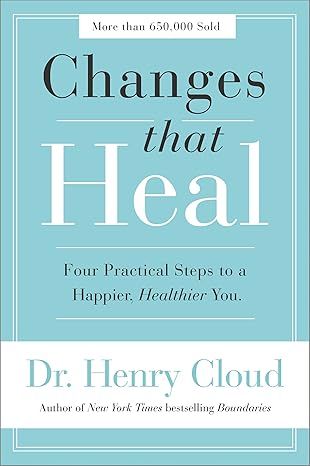
Changes That Heal: Four Practical Steps to a Happier, Healthier You
4.8
-
2,937
$0.99
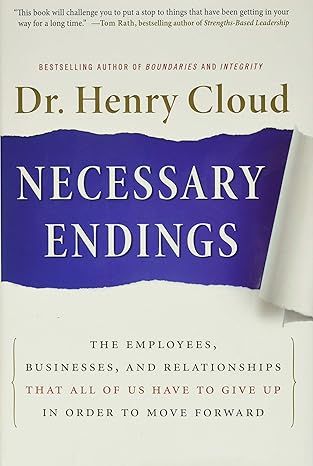
Necessary Endings: The Employees, Businesses, and Relationships That All of Us Have to Give Up in Order to Move Forward
4.7
-
2,598
$0.99
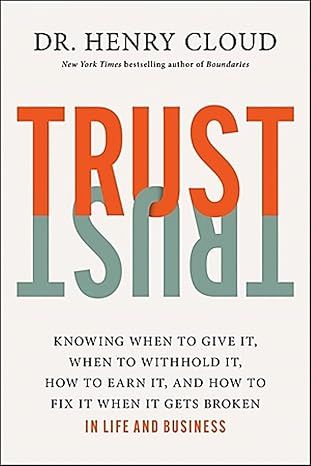
Trust: Knowing When to Give It, When to Withhold It, How to Earn It, and How to Fix It When It Gets Broken
4.8
-
626
$0.99
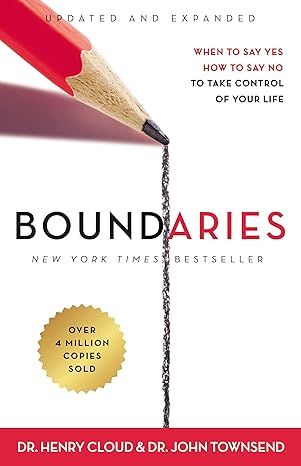
Boundaries Updated and Expanded Edition: When to Say Yes, How to Say No To Take Control of Your Life
4.7
-
23,877
$0.99
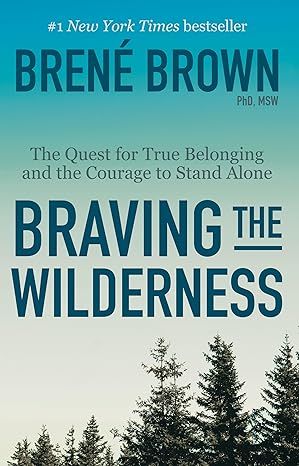
Braving the Wilderness: The Quest for True Belonging and the Courage to Stand Alone
4.6
-
14,403
$0.99
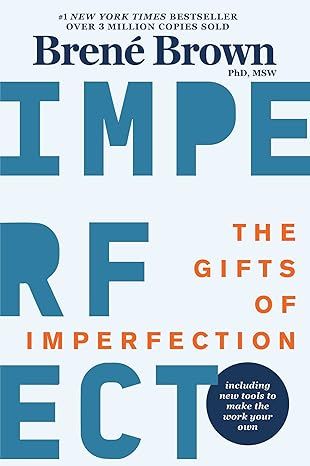
The Gifts of Imperfection: 10th Anniversary Edition: Features a new foreword and brand-new tools
4.7
-
42,318
$0.99
Best sellers
View all
The Tuscan Child
4.2
-
100,022
$8.39

The Thursday Murder Club: A Novel (A Thursday Murder Club Mystery)
4.3
-
155,575
$6.33

Sapiens: A Brief History of Humankind
4.6
-
140,302
$13.49

The Butterfly Garden (The Collector, 1)
4.3
-
88,556
$9.59

Things We Hide from the Light (Knockemout Series, 2)
4.4
-
94,890
$11.66

The Last Thing He Told Me: A Novel
4.3
-
154,085
$2.99

The Perfect Marriage: A Completely Gripping Psychological Suspense
4.3
-
143,196
$9.47

The Coworker
4.1
-
80,003
$13.48

First Lie Wins: A Novel (Random House Large Print)
4.3
-
54,062
$14.99

Mile High (Windy City Series Book 1)
4.4
-
59,745
$16.19

Layla
4.2
-
107,613
$8.99

The Locked Door
4.4
-
94,673
$8.53
